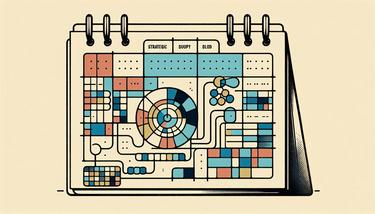In Libya, the 23rd of October holds profound historical significance, marking Liberation Day. This pivotal national holiday commemorates the momentous conclusion of the 2011 Libyan Revolution and the ultimate downfall of Colonel Muammar Gaddafi's four-decade-long autocratic rule. The date specifically signifies the official declaration of Libya's liberation by the National Transitional Council (NTC) on October 23, 2011, just three days after Gaddafi's capture and death near his hometown of Sirte.
Gaddafi, who seized power in a 1969 military coup, ruled Libya for 42 years, transforming the oil-rich nation with his unique brand of pan-Arab socialism. His regime was characterized by tight control, suppression of dissent, and a complex relationship with the international community. The 2011 uprising, which began in February, was part of the broader 'Arab Spring' movement that swept across North Africa and the Middle East, fueled by widespread dissatisfaction with authoritarian governments, economic hardship, and a desire for greater freedoms.
The Libyan Revolution and Its Aftermath
The revolution quickly escalated into a full-scale civil war, drawing international attention and eventually leading to a NATO-led military intervention, authorized by UN Security Council Resolution 1973, to protect civilians. The conflict culminated in the fall of Tripoli in August 2011 and, critically, the capture and death of Gaddafi on October 20, 2011. While his demise marked a turning point, the formal declaration of liberation on October 23rd symbolized the hope for a new chapter in Libyan history, free from the grip of the former regime.
As a public holiday, Liberation Day allows Libyans to reflect on this transformative period, honoring those who participated in the uprising and acknowledging the immense changes that have reshaped their nation. It is a day of remembrance and a renewed focus on building a stable and prosperous future, despite the ongoing challenges the country has faced in its post-Gaddafi era.
Distinguishing Liberation Day from Independence Day
It is crucial to differentiate Liberation Day from another significant national observance, Libyan Independence Day. While both are public holidays, they commemorate distinct historical events:
- Liberation Day (October 23rd): Marks the end of the 2011 revolution and the collapse of the Gaddafi regime.
- Independence Day (December 24th): Celebrates Libya's declaration of independence from joint British and French administration on December 24, 1951, when the United Kingdom of Libya was established under King Idris I, marking its emergence as a sovereign state.
Understanding these distinct commemorations helps to appreciate the multifaceted journey of Libya's national identity and its ongoing pursuit of self-determination.
Frequently Asked Questions About Libyan Holidays
- What is the significance of October 23rd in Libya?
- October 23rd is Libya's Liberation Day, commemorating the official declaration of the country's liberation from Colonel Muammar Gaddafi's rule following the 2011 Libyan Revolution.
- Is Liberation Day the same as Libyan Independence Day?
- No, they are distinct national holidays. Liberation Day (October 23rd) marks the end of the 2011 revolution, while Independence Day (December 24th) celebrates Libya's independence from colonial administration in 1951.
- Who was Muammar Gaddafi?
- Muammar Gaddafi was the leader of Libya from 1969 until 2011, ruling for 42 years before his overthrow during the Libyan Revolution.

 English
English  español
español  français
français  português
português  русский
русский  العربية
العربية  简体中文
简体中文 




